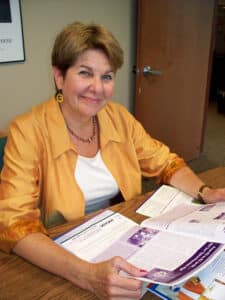By Jennifer Faringer
When the Supreme Court opened the doors to mobile sports betting (MSB) in 2018, it laid the path for states to follow. As of 2024, it has been legalized in 38 states. New York state legalized sports gambling in 2013 and went on to legalize mobile sports betting in 2022, expanding the number of bets and gamblers exponentially. The state focused on the projected revenue that mobile sports betting would bring in, rather than the exponential increase in the numbers of individuals, families and communities impacted by this decision and the devastation of this addiction.
While problem gambling affects individuals of all ages, the greatest increase, according to a recent Siena College poll, was found in men aged 25 to 34. Of the young men who are placing bets online, half of the poll participants acknowledged that they are betting far over their limits. This affects teens and younger adults as well those who are betting on more than a favorite sport. Instead, they are seeking the action of placing bets on various plays, much more than the game itself. Betting on separate plays within a game is known as microbetting, which has increased in frequency with MSB. This trend has become more common with the rise of online platforms, such as UFABET: ศูนย์กลางการเดิมพันของคุณ, offering enticing bonuses and rewards.
Mobile sports betting utilizes artificial intelligence (AI), which is capable of drilling down to the individual gamblers’ preferences to determine their betting data points. The industry looks at what offers are more attractive, what the push points are, the inducements that both attract and retain the gambler, and how to ensure a gambler will continue to gamble for longer periods with increasing wagers. Essentially, AI learns when an individual is most vulnerable.
It is important to remember we are dealing with an addiction that can devastate not only the individual gambler but also their families, their communities, and their places of work.
The industry blames the gambler just as the tobacco companies several decades ago blamed the smoker for refusing to acknowledge the addictive nature of their product.
We are again dealing with an addictive product with few, if any, guardrails when it comes to MSB. A recent 60 Minutes interview described it as a ‘Wild West’ due to lack of controls in place.
Problem gambling help is available!
For more information and to access referral resources, visit the National Council on Alcoholism and Drug Dependence – Rochester Area’s website at www.ncadd-ra.org/services/finger-lakes-addiction-resource-center/ and view the “Problem Gambling Services Directory” (https://ncadd-ra.org/wp-content/uploads/2023/12/Problem-Gambling-for-9-Counties-Dec-2023.pdf).
Other resources are available through the Finger Lakes Problem Gambling Resource Center at https://nyproblemgamblinghelp.org/stop-gambling-near-me/.
 Jennifer Faringer, MS Ed, CPP-G, is the director of the National Council on Alcoholism and Drug Dependence – Rochester Area (NCADD-RA).
Jennifer Faringer, MS Ed, CPP-G, is the director of the National Council on Alcoholism and Drug Dependence – Rochester Area (NCADD-RA).

